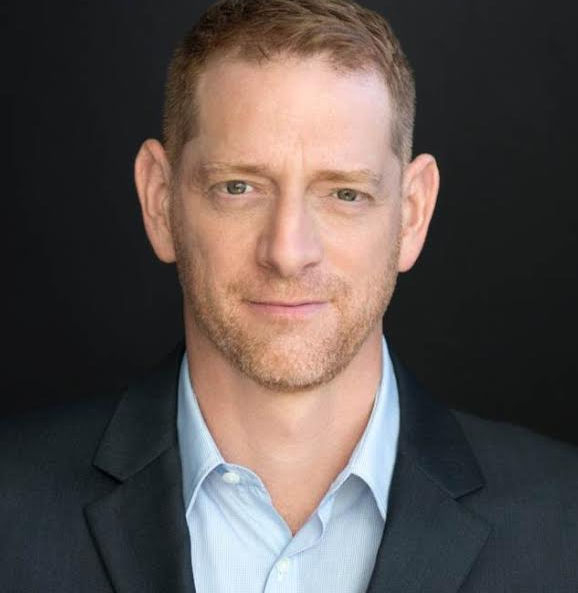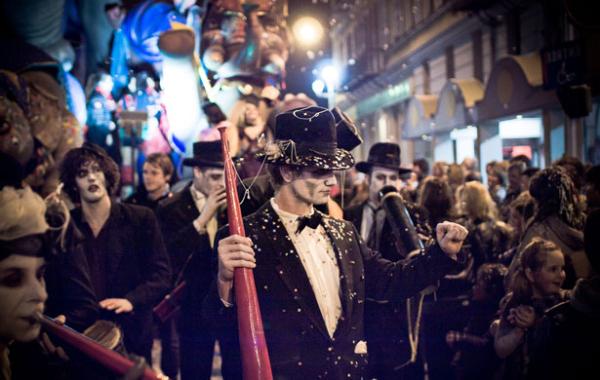Guest Blog: What America can learn from UK theatre festivals

I'm in London collaborating with LIFT and GDIF, two amazing festivals, on a really unique show you may have never heard of called Deblozay. I’m so happy to be working in a festival context again. Festivals are vital, surprising and exciting. They provide opportunities for audiences and artists to step out of their usual patterns; to come together to celebrate the city, and celebrate in the city. They provide opportunities for transformation, both for individuals and communities. Festivals promote diversity, they bring neighbors into dialogue, they increase creativity. In short, they make cities better places to live.
Now I realise to you, the UK reader, this may not be a new idea. But from an American perspective, it's pretty wild. Arts festivals don't abound across the Atlantic the way they do here. In fact, in North America, where there is a laughable amount of public subsidy for the arts, festivals are mostly marketing constructs: a series of pre-existing work that are packaged together in sometimes clever ways.
But what exactly is New York missing? How can one characterise the work that you see at LIFT, GDIF, Brighton, Norfolk and Norwich – this work that seldom gets to North America? In short, what makes a festival show a festival show? There are, of course, many answers, but for now, here are three: the role of the audience, the innovative use of site, and the dialogue between the local and global.
“The dialogue between the local and the global is an essential element of festival shows”
“The dialogue between the local and the global is an essential element of festival shows”
Festival shows ask the audience to play an essential role in shaping the performance. They ask the audience to be a player, protagonist, a partner, rather then a mere spectator. Some festival shows are completely immersive experiences that put the audience at the centre of the action. Sure, all works of art have always, to some extent, been co-authored by artists and their spectators. Each of us brings our own experiences to the interpretation; we all see the work through our own eyes. But LIFT shows like De La Guarda and You Once Said Yes take this reality, heighten it, even celebrate it: every single spectator ends up having their own unique experience in the performance.
Festivals have long embraced the innovative use of site. Festivals understand that imagination cannot be contained in the usual buildings. Art can happen anywhere. You can do a show in a schoolroom, in an airport, or in a department store window. Artists are explorers. Who better to show us the city anew? Artists can take us to a far-flung part of the city that we haven't explored, or they can take us into that building that we pass every day but have never thought about entering.
And it's exciting to watch what happens to spectators when they're taken to unexpected places. In my experience, non-traditional sites awaken our senses. We become more open to adventurous work. When audiences sit down in a plush red chair in a familiar-looking proscenium theatre, the questions are: Will it be one act or two? Is it a play a musical? Classic or contemporary? Take audiences someplace unexpected, and the paradigms shifts.

The dialogue between the local and the global is an essential element of festival shows. These festivals are not interested in simply air-lifting culture in from far off lands. They are interested in forming meaningful interactions between international artists and local audiences and artists. We're not talking about a talkback after the show. We're talking about artists who make work that responds directly to a community, that celebrates a city on it's own terms.
Deblozay – by the company Rara Woulib – is for me the definitive festival show because it does all of these things. I first saw Deblozay two summers ago, at Chalon dans la Rue, a fantastic festival of street theatre and performance in a small french town. There I met Deblozay's director, Julien Marchaisseau, who told me of his experiences living in Haiti and the striking funeral marches that wound through the streets. This became the inspiration for his show, which Julian describes as a trip through the memory of a city and that of its people. The company has created a wild and thrilling theatrical procession with us, the audience.
During Deblozay we find ourselves chanting, dancing, even running with the company. We are invited to play a central role in the performance. The production fully embraces site: the city truly is the stage. And though Rara Woulib is from Marseille and inspired by Haitian culture, this weekend it will be collaborating with artists and audiences in East London. It's definitely working locally and globally. And that to me makes for pretty thrilling work.
Hope to see you there.
Deblozay runs as part of LIFT on 20 and 21 June – more info here










